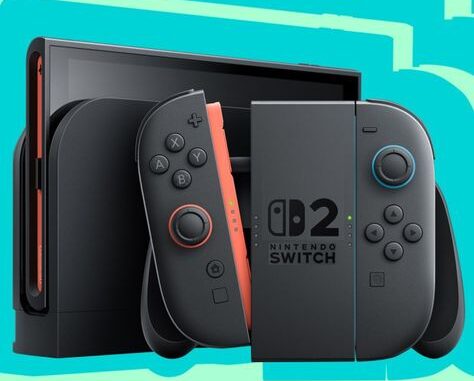
As excitement for the Nintendo Switch 2 sweeps across the gaming world, a surprising and frustrating trend is emerging: many of the console’s physical game releases don’t actually include the full game on the cartridge. In some cases, the cartridge contains only a portion of the game—or none of it at all—forcing players to download large chunks of content or the entire title online.
This trend is raising serious questions about the meaning and value of physical game ownership in the digital age.
What’s Happening?
With the launch of several major third-party and even some first-party titles on the Nintendo Switch 2, players have begun reporting that inserting a cartridge doesn't provide immediate access to the full game. Instead, it often prompts a significant download—sometimes exceeding 30 or 40 gigabytes. In more extreme cases, the cartridge acts merely as a verification tool, triggering a download of the entire game from Nintendo’s servers.
For gamers who pre-ordered or purchased these physical versions in hopes of avoiding large downloads or conserving internal storage, this is a major letdown.
“I bought the physical version of Nightfall Tactics because I didn’t want to use up my SD card,” said Rachel Thomas, a Switch 2 owner from Toronto. “But when I put the cartridge in, it just downloaded 28GB of data. I might as well have bought it digitally and saved the trip.”
Why Is This Happening?
The root of the issue lies in the cost and limitations of Nintendo’s proprietary game cartridges. Unlike the relatively cheap Blu-ray discs used by PlayStation and Xbox, Nintendo’s cartridges are more expensive to manufacture—especially those with higher storage capacity. To cut costs, publishers often opt for smaller-capacity cartridges and offload the rest of the game to the internet.
This approach has become more common as modern games grow in size. Developers often find themselves forced to make a choice: compress or cut content to fit on smaller cartridges, or rely on mandatory downloads. For many, the latter is the only viable business decision.
The Fallout Among Players
The practice is generating backlash from fans who feel misled or cheated by the promise of a physical purchase. Many buy cartridges expecting a plug-and-play experience or for the benefits of long-term ownership, data preservation, and resale value. Instead, they’re getting little more than a box and a placeholder.
Gaming forums, Reddit threads, and social media platforms are filled with disappointed posts and heated discussions.
“This isn’t a physical game. It’s a physical license for a digital product,” one frustrated user wrote on Reddit. “I didn’t spend $70 to download the game anyway.”
Impact on Game Preservation and Ownership
Beyond the immediate frustration, there are deeper concerns about the long-term implications. Game preservationists warn that relying on downloads could make many Switch 2 titles inaccessible in the future, especially if Nintendo’s servers shut down or if licenses expire.
“Ten or twenty years from now, will we be able to play these games?” asked Miguel Ortega, a digital archivist who works with retro game collections. “If the data isn’t on the cartridge and you can’t download it anymore, those games are essentially lost.”
Collectors, too, are rethinking the value of physical editions. Without the actual game data, these cartridges lose their appeal as archival items.
Lack of Clear Labeling
Another point of contention is the lack of transparency on game packaging. While some publishers have started to include small print saying "Download Required," it’s often not prominent, leading consumers to believe they’re buying the full game on the cart. Critics argue this is misleading and demand clearer labeling standards for all physical releases.
Retailers are also caught in the crossfire, facing returns and complaints from customers who feel duped. Some stores have begun placing their own warning stickers on affected titles, but solutions remain inconsistent.
What Can Be Done?
For now, consumers are left with few options. Publishers are unlikely to absorb the extra cost of larger-capacity cartridges unless there is significant backlash or regulatory pressure. Meanwhile, Nintendo has yet to implement any strict guidelines mandating full-game availability on physical media.
Some fans are calling for a boycott of “fake physical” games, encouraging others to either go fully digital or support only publishers that include the complete game on cartridge.
In the meantime, buyers are urged to research each game before purchasing, check for “download required” notices, and consider the real value of a physical copy in today’s increasingly digital gaming landscape.
Leave a Reply